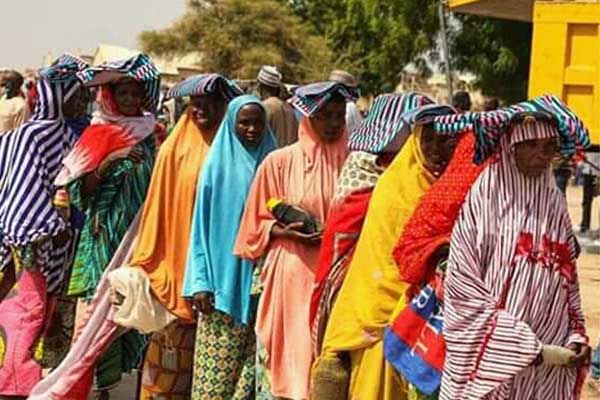
Borno State Report:
The civil societies’network, also known as CSO Situation Room in Borno State, has called on the Borno State Government and the State Committee on COVID-19 to engage more women as a strategy for deeper community sensitisation, in the bid to quell the coronavirus crisis. Within the last three months, the CSO Situation Room has been leveraging on the presence of its over 170 members across the state to support the State Committee on COVID-19 in public sensitisation and communication. The Situation Room has also been working closely with the State Committee on COVID-19, by ensuring that persons with symptoms of the disease and other social concerns related to the pandemic are promptly brought to the attention of the State Committee. Several members of the Situation Room have noted from experience so far gathered,the value of engaging with women when communicating about risks. The Situation Room operates a Call Centre where calls and messages are received from the general public via dedicated mobile numbers and social media platforms. An analysis of the calls and messages received during the 21 day – total lockdown period observed in the State recently,indicated that majority of the calls and messages were from women. With the strict restriction to movements imposed at the time, women were more interested in seekingclarifications from the Situation Room concerning symptoms of the coronavirus disease and the distribution of palliatives. Very many women reached out to the Situation Room via its Call Centre, to ask questions on behalf of their children, husbands, aged parents and other sick persons around them. During the distribution of palliatives to the less-privileged families in IDP camps, women were often seen representing their families on the queues; sometimes, standing for hours, until they have gotten something to take back to their families.
The CSO Situation Room is of the informed view that women, being the primary caregivers to children, the elderly, and the ill, should be recognised and engaged in all COVID-19 interventions involving risk communication and community engagement. Women’s access to information on outbreaks and available services that render help, is often severely constrained when community engagement teams are dominated by men. When community engagement teams have a gender-balanced workforce, withmore women included and trained on advocacy and information management, such teams stand a better chance of making meaningful, long-lasting impacts in the lives of the people. But failure to recognise gendered dynamics during outbreaks, limits the effectiveness of risk communication efforts. Critical factors such as gender, as well as, language and local culture, are essential considerations in tailoring community engagement interventions, in order to improve communities’ cooperation and collective participation.

The CSO Situation Room therefore urges the Government and development partners to develop programmes that will avail women with numerous opportunities for intensive training and enable them to participate meaningfully in community engagements and related roles. Women should also be given professional counselling on ways to care for children, the elderly and other vulnerable groups in self-quarantine who may not be able to avoid close contact, without exposing themselves to the virus.
The CSO Situation Room also calls on the women of Borno State to leverage the increasing level of empowerment and self-awareness amongst women and girls globally, and be encouraged to express themselves freely and talk about their health challenges, risks to livelihoods and violations of women’s rights experienced as a fallout of the difficult times brought upon by the pandemic. This will compel more attention to be paid towards finding lasting solutions to the negative impacts of the pandemic on the people, especially the most vulnerable, being the women and children.
